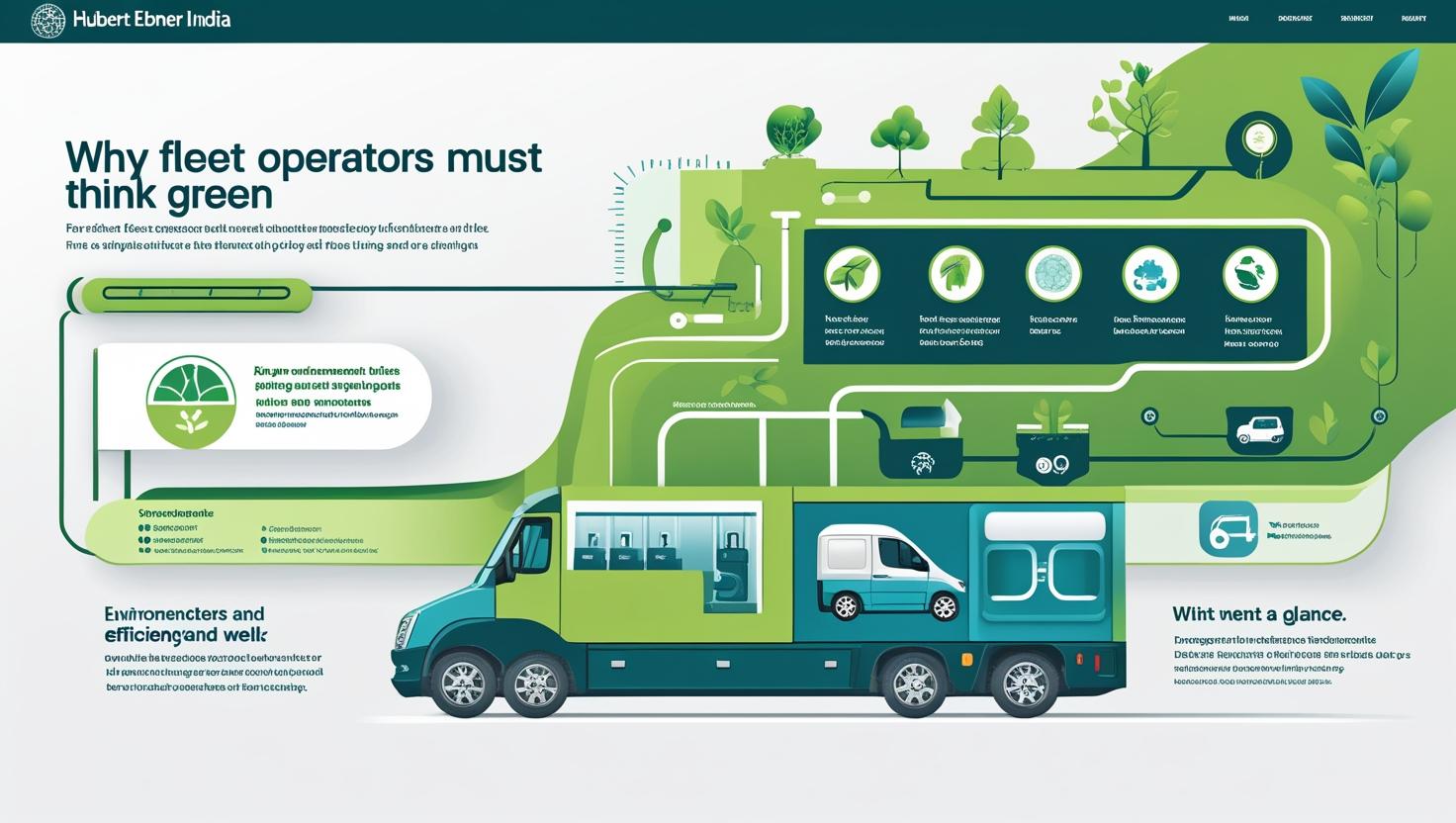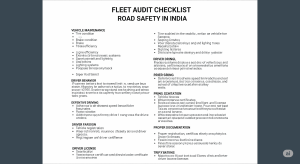Why Fleet Operators Must Think Green
Introduction
Fleet operators are at the heart of modern logistics, passenger transport, and delivery services. However, with the rise in environmental concerns and strict regulatory frameworks, “thinking green” is no longer optional — it’s essential.
At Hubert Ebner India, we work closely with transport companies, corporates, and government agencies to train drivers and managers in eco-friendly, safety-focused fleet operations that benefit the environment, save costs, and enhance corporate reputation.
The Environmental Impact of Fleets
Fleet vehicles — from trucks and buses to taxis and delivery vans — are a significant source of:
- CO₂ emissions → contributing to climate change.
- NOx and particulate matter → worsening urban air pollution.
- Noise pollution → affecting community health.
- Fuel waste → increasing operational costs and resource depletion.
Given that fleet vehicles often operate for long hours and cover extensive distances, their environmental footprint is disproportionately large compared to private cars.
Why “Thinking Green” Is a Business Imperative
1. Regulatory Compliance
- Governments are enforcing stricter emission norms such as BS-VI standards in India.
- Non-compliance can lead to hefty fines, license revocation, or vehicle bans in low-emission zones.
2. Cost Savings
- Eco-driving and preventive maintenance reduce fuel consumption by up to 15%.
- Lower repair costs from reduced engine strain and brake wear.
3. Brand Reputation
- Consumers increasingly prefer businesses with sustainable practices.
- A green fleet signals responsibility and commitment to corporate social responsibility (CSR).
4. Employee Engagement
- Drivers trained in eco-friendly practices feel more valued and skilled.
- Safer, smoother driving reduces stress and accidents.
How Fleet Operators Can “Go Green”
1. Adopt Eco-Driving Practices
- Train drivers to accelerate smoothly, maintain steady speeds, and avoid unnecessary idling.
- Encourage use of higher gears at optimal RPM for better fuel economy.
2. Regular Vehicle Maintenance
- Routine engine checks to reduce emissions.
- Timely tire inflation for better mileage and less road noise.
3. Optimize Route Planning
- Use GPS and route optimization software to avoid congested roads.
- Reduce unnecessary trips by better scheduling.
4. Invest in Cleaner Technology
- Transition to electric or hybrid vehicles where possible.
- Use fuel additives or upgraded filters to lower emissions in existing vehicles.
5. Monitor Driver Performance
- Use telematics systems to track speed, braking, and idling.
- Provide feedback and incentives for drivers who maintain eco-friendly habits.
The Role of Training in Green Fleet Management
At Hubert Ebner India, we offer specialized fleet training programs covering:
- Eco-driving techniques for different vehicle types.
- Behavioral change strategies to ensure drivers stick to green practices.
- Safety-first training that complements environmental goals.
Our approach combines classroom instruction, on-road training, and performance monitoring to help fleet operators achieve measurable reductions in emissions and fuel costs.
The Triple Bottom Line of Green Fleets
A green fleet benefits:
- The Planet → Lower carbon footprint and cleaner air.
- People → Safer roads, healthier communities.
- Profit → Reduced operational costs and improved brand image.
Conclusion
For fleet operators, “thinking green” is not just an environmental choice — it’s a strategic business decision. By implementing eco-friendly practices, companies can stay compliant, reduce costs, and strengthen their market position while making a tangible difference for the planet.
At Hubert Ebner India, we’re committed to helping fleet operators make the shift toward sustainable, safe, and efficient transport solutions.




